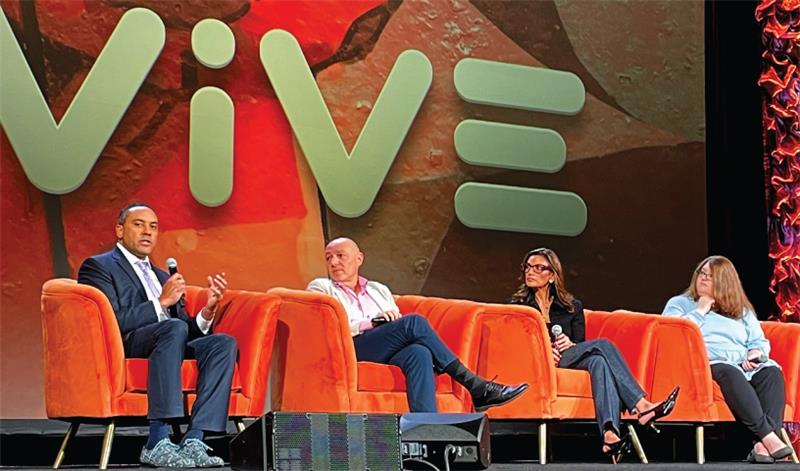
Bringing a positive attitude to the workplace and bringing impactful health care companies and technology to market.
David Gibson was named Chief Financial Officer of UPMC Enterprises in November 2019. As CFO, Gibson leads a team of eight people who oversee all accounting and finance related matters for the organization and its portfolio companies.
Gibson, a graduate of Bucknell University, joined UPMC Enterprises in 2015 after working the previous 10+ years for Deloitte, Philips Respironics, and Precision Therapeutics, an early stage cancer diagnostic company. In those positions, Gibson was exposed to the finance and accounting needs of small and large, private and public organizations, supporting multiple financing transactions and integrations.
While Gibson didn’t originally set out to have a career in health care, he says the mission of a health care organization gives him great personal satisfaction. “I feel like I have the ability to impact patients even though I’m not directly involved in their care. That sense of purpose supporting businesses that positively affect people’s lives is very fulfilling,” he said.
We talked to Gibson to find out more about his background, what he finds unique working at Enterprises, and what he would want on a deserted island.
How did you come to UPMC Enterprises?
I was put in touch with the organization around the time Enterprises was forming by an associate who thought my experience in accounting, health care finance, and raising capital would be an ideal fit. When I learned more about what UPMC was doing with Enterprises, from investing in promising health care startups to spinning out technology developed within the health system, I was very excited to be a part of that.
What is most unique about working in finance for UPMC Enterprises?
Our team really spans the full spectrum of finance. We perform a variety of functions, including buy-side and sell-side financial due diligence, modeling and valuation support, in addition to the traditional controllership activities. We balance the accounting, tax and internal control requirements of a $20 billion health system while ensuring the nimbleness necessary for early stage investing. My team really enjoys the opportunity to partner with our portfolio companies as they grow, from providing bookkeeping services to supporting an add-on acquisition. The variety of work keeps us on our toes.
More health systems are venturing into the arena of investing in and spinning out startup companies. What do you think makes UPMC Enterprises stand out from other health systems?
Being a part of UPMC and having access to the resources it provides is truly unique in this space. I’m not just talking about capital, but also all the clinical, research, technology and subject matter expertise we have access to at the health system and through its relationships with local universities such as University of Pittsburgh and Carnegie Mellon University.
And then building upon that, UPMC’s commitment to the work of Enterprises is really amazing. I see it as an “all-in” mentality for supporting the best science and technology that will make a difference in health care. Just look at the $1 billion we’re committing to life sciences investments or our support for the Pittsburgh Health Data Alliance. UPMC isn’t just dipping a toe into the commercialization waters. We’ve built a world-class team that is serious about bringing to market new health care companies, technologies, and solutions. Enterprises portfolio has grown to over 30 opportunities since I joined five years ago.
What was your first job and what did you learn from it?
When I was 15 years old, I started working at McDonalds to save money for my first car. The job really forced me to begin developing my time-management skills, something I still carry with me today. Back then it was balancing school, athletics, a part-time job, and still having time to just be a teenager. Now I balance a career, family commitments, responsibilities of maintaining a home, and more. Each phase of life has different, competing demands and I believe time management has been one skill that has assisted me in being successful.
I’ll just add that McDonalds also was one of my earliest experiences working effectively with a diverse group of people — different ages, backgrounds, skill sets, etc. Many of the qualities I began to develop during that experience I still attempt to focus on today, like being a good listener, being respectful, and maintaining a positive attitude. Helping to facilitate an environment where people can be comfortable, feel valued, and make an impact normally creates enormous amount of pride and motivation to get the best from a team.
If you were stranded on a deserted island, what is one item you would want, and why?
A survival knife, something like what Sylvester Stallone used in Rambo. It can assist in hunting, fishing, making shelter, even possibly constructing a raft.


